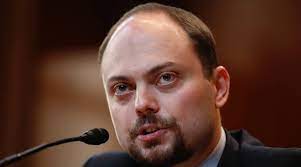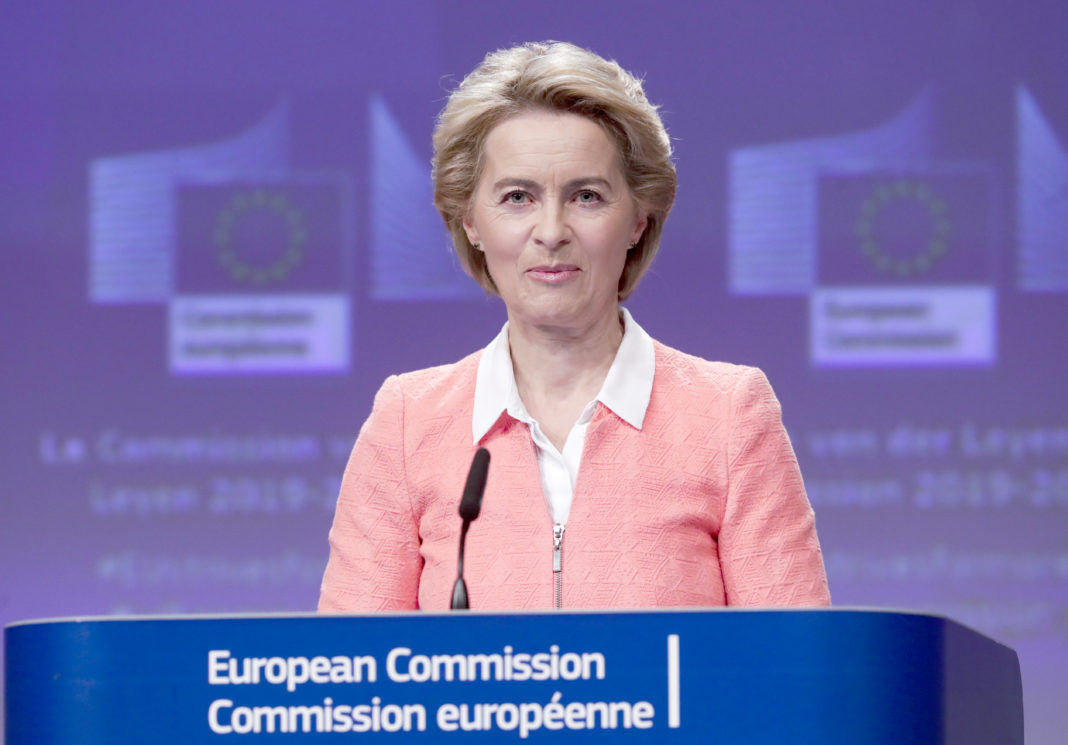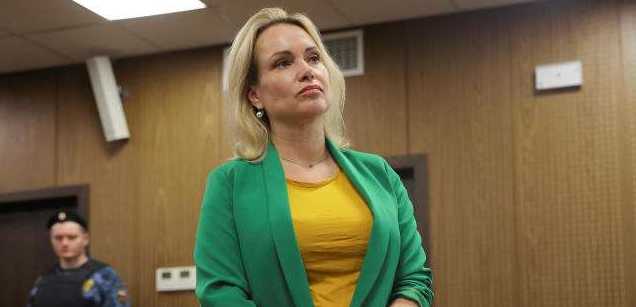
Vladimir Kara-Murza the Russian opposition activist has been found guilty on three separate counts at his brief trial and as a result has been given the harshest of prison sentences. The hardline judge reached his verdict in just a few minutes and decreed that he must serve 25 years locked away – the maximum sentence attainable by his prosecutors.
His “crimes” were given as treason, spreading “false” information about the country’s army, and being affiliated to an “undesirable organisation”with strong links to his criticism of the illegal invasion and on-going war in Ukraine.
The former journalist and politician was informed that he would serve his jail term in a “strict regime correctional colony” and was also told he must pay a fine of 400,000 roubles ($4,900 or £4,000).
The incredibly severe outcome is another sign that authorities are driven to silencing any critics, and will nullify anything or anybody who is deemed to represent a serious challenge to their strict political system.
Many will also see it as “revenge” by the Kremlin decision-makers, after Mr Kara-Murza survived two alleged poisonings attempts on his life and therefore this was “the next best thing”.
He had received British citizenship when moving to the UK in his teens and actually attended Cambridge University. He had taken his family to the United States before the the Russian invasion, but had returned to his birth country and continued to speak out against the government
He is just the latest in a long line of Putin opponents to have been arrested and thrown into prison, forced into exile, or in some cases, killed.
No foreign media allowed in court
Foreign reporters were not allowed access into the court; in actual fact just a handful of journalists from the Russian state media were granted entry, along with the defendant’s mother and lawyer.
After sentencing, Maria Eismon, the legal representative of Mr Kara-Murza, spoke outside to make the point that the time imposed on her client was “terrifying” but if anything it was an acknowledgement that his efforts had caused effect and showed “high appreciation” of all of his work.
She went on to say that upon hearing the decision was for 25 years imprisonment, his reaction was to tell her “my self-esteem has risen, it makes me realise I have been doing everything right!”
Unrepentant and proud
In the lead up to the trial, Mr Kara-Murza released a statement in which he remarked that he subscribed to every word that he had said in the past and reiterated: “Not only do I not repent any of this, I am proud of it, because I know that the day will come when the darkness engulfing our country will clear.”
He then continued to offer up a glimpse into the future saying: “Our society will open its eyes and shudder when it realises what crimes were committed in its name.”
Extreme sentence strongly condemned
The length of his sentence has been met with widespread condemnation in other parts of the world. The British government were particularly critical and immediately summoned its Russian ambassador in London. The UK’s Foreign Secretary, James Cleverly said: “Russia’s lack of commitment to protecting fundamental human rights, including freedom of expression, is alarming.”
Also condemning the jail term imposed was the US State Department which described Mr Kara-Murza as “yet another target of the Russian government’s escalating campaign of repression.”
Human Rights Watch, which is a “Not-for-profit” group, declared the verdict a “travesty of justice” and called on the Russians to “immediately vacate the verdict and unconditionally free him.” Sadly those words will inevitably fall on deaf ears, and although there is likely to be an appeal, there is next to no chance of anything changing.
Dissident background
Mr Kara-Murza and his family have a very well-known Soviet dissident background, with his father, Vladimir Sr, in particular being a harsh critic of the government. A career in journalism seemed likely before he became an adviser to Boris Nemtsov, another prominent Russian opposition leader and politician, who was shot dead in Moscow in 2015.
Major role in the Magnitsky Act
The activist played a significant role in persuading Western governments to sanction Russian officials for their abuse on human rights issues, as well as their “wide spread” corruption. The Magnitsky Act, which is a key piece of legislation that was passed in the US, owed a great deal to Mr Kara-Murza’s involvement.
Poisoning attacks do not deter his fight
He has twice been the victim of mysterious poisoning episodes. In 2015 he slipped into a coma after collapsing and his wife, Evgenia, was told he had a 5% chance of survival, but such is his fighting spirit, he battled through that and a second attack in 2017. He had to be slowly nursed back to health, including learning some of the basic functions, such as holding a spoon or brushing his teeth.
Yet even then he would insist on working on his laptop, despite it making him physically sick a dozen times a day. Then the moment he was able to walk properly again he was straight back to Russia, explaining to his wife that the fight there was bigger than his own personal fears and in his words: “the price of silence is unacceptable.”
Always going to return despite high risk
Evgenia did not attempt to dissuade him even though she knew the severe risks involved after the invasion of Ukraine had begun, so was aware that thousands of protesters had already been arrested. She explained: “He felt he could not stay abroad because he did not think he had the right to continue his political activity to call other people to action, if he was sitting safely somewhere else.”
From tenuous arrest to treason charge
His arrest came last year in Moscow, with him initially being held on a flimsy charge of disobeying a police officer. Almost predictably, once in custody more serious charges were levelled at him, with a substantial part of the case against him centred on a speech he made to politicians in Arizona in the US last year, which investigators had picked over.
In it he accused the Russians of committing war crimes in the Ukraine, with the use of cluster bombs in residential areas and gave information relating to knowledge that he had attained which confirmed that they were “bombing maternity hospitals and schools”. He the added: “I only blame myself for one thing and that is I failed to convince enough of my compatriots and politicians in democratic countries, of the danger that the current Kremlin regime poses for Russia and for the wider world.”
Blindly ignoring the facts before them
Naturally, those claims were dismissed by the investigators working on behalf of the invading Russians, with the defence ministry claiming that they “did not permit the use of banned means of conducting war” despite firm evidence to the contrary.
A follow-up charge was levelled at Mr Kara-Murza for his referral to Russia’s “repressive policies” and this was then added to, with the inevitable charge of state treason.
Investigators create treason charge
Those same investigators have concluded that he was speaking on behalf of the US-based Free Russia Foundation, a movement that like any other is banned in the country, and if an individual is deemed to be a “consultant” or an “assistant” to such a foreign organisation, then that is considered a security threat, which they have determined can be classed as treason, irrespective of the fact that no secrets have been divulged.
Lawyer questions “absurd” interpretation of crimes
Ms Eismon, on behalf of Mr Kara-Murza was astonished at the introduction of treason into her clients charges. “State treason for public speeches? That is just absurd.” She called it “persecution for expressing an opinion with free speech.”
She made the point that it is clearly a political case and the government were blatantly trying to stigmatise the absolutely normal, civilised opposition to the current Russian leadership, which were courageous words, but possibly ill-advised sentiments, under the circumstances.
Repression at a new level of intensity
Any form of opposition to President Putin has always been a dangerous choice, even before the Ukrainian invasion, but since then there has been an intensification of repression to a level that makes it practically impossible; meaning the dictator now rules virtually unchallenged.
Indeed, almost all prominent critics have either been arrested, left the country, or mysteriously disappeared.
Opposition a very dangerous choice
Over the course of two decades, Putin has gradually stamped out all dissenting voices, including in the early years, powerful oligarch’s such as: Mikhail Khodorkovsky – who he imprisoned and who no longer resides in the country – and Boris Berezovsky, who died suspiciously in exile, apparently by suicide.
Alexei Navalny was possibly the most prominent opposition figure, but after being poisoned with Novichok, the military-grade nerve agent, while on a trip to Siberia in 2020, he recovered only to be arrested for fraud and contempt of court. He is now serving nine years in prison.
Anybody who dares to openly criticise the war in Ukraine are severely dealt with, as politician Ilya Yashin found out last year when he was sentenced to eight-and-a-half years for highlighting possible war crimes committed by Russian forces.
Key opposition leader and former deputy prime minister, Boris Nemtsov, was shot four times as he crossed a bridge outside the Kremlin, just a matter of hours after appealing for support for a march against Russia’s initial invasion of Ukraine, back in 2014. Evidence emerged in 2021 that in the months running up to the killing, Nemtsov was being followed all across Russia by a government agent, linked to a secret assassination squad.
Media all onside now
Additionally, all key media outlets in Russia have gradually fallen under the control of the state, or those that remain independent have been frightened off to such an extent that they now only ever print what is the official Kremlin line.
Pride in joining a internationally respected figure
He may be facing 25 years locked away for daring to challenge the system, but Vladirir Kara-Murza remains fiercely opposed to the brutal regime ruling his country and proudly pointed out that the last person accused of treason for political opposition was the Nobel Prize-winning writer Alexander Solzhenitsyn, in 1974, which prompted him to declare: “All I can say is that I am honoured to be in such company.”






0 Comments